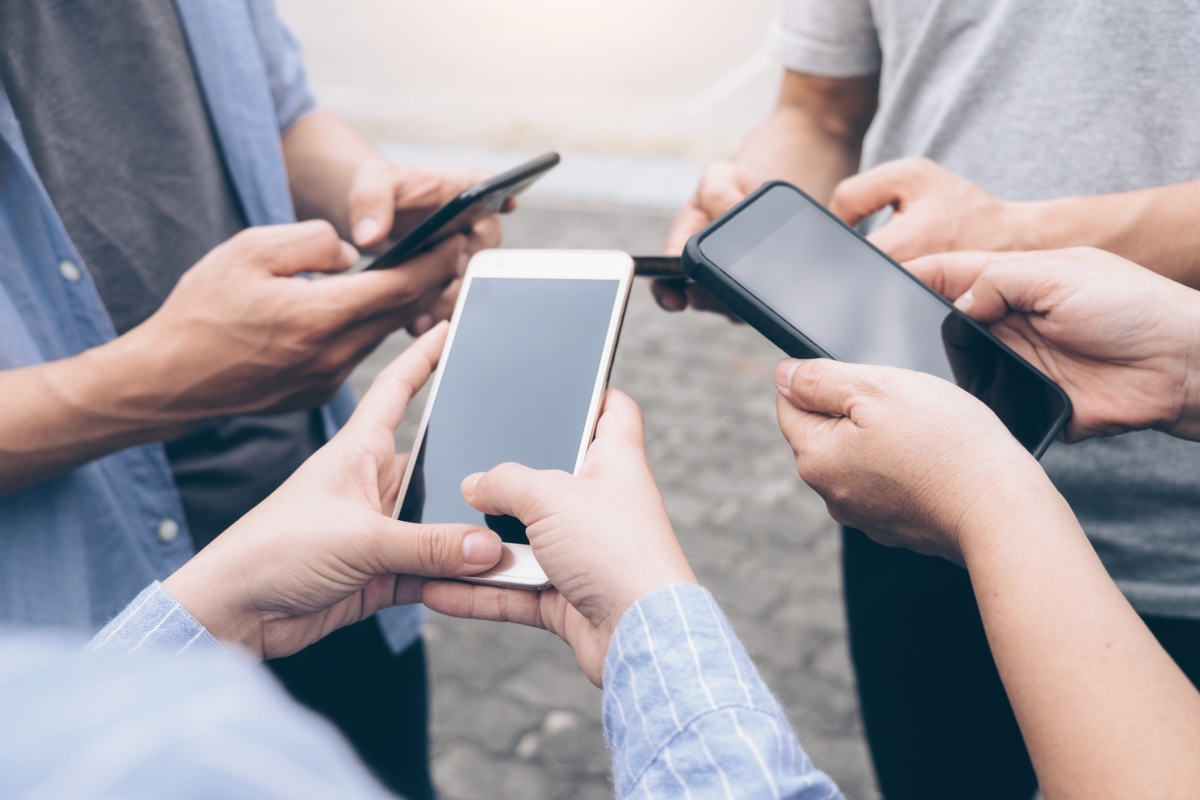Neurobiology of mobile-device habits stems from a healthy human need to socialize, rooted in evolution, McGill researchers find
We all know people who, seemingly incapable of living without the bright screen of their phone for more than a few minutes, are constantly texting and checking out what friends are up to on social media.
These are examples of what many consider to be the antisocial behaviour brought on by smartphone addiction, a phenomenon that has garnered media attention in the past few months and led investors and consumers to demand that tech giants address this problem.
But what if we were looking at things the wrong way? Could smartphone addiction be hyper-social, not anti-social?
Professor Samuel Veissière, a cognitive anthropologist who studies the evolution of cognition and culture, explains that the desire to watch and monitor others, but also to be seen and monitored by others, runs deep in our evolutionary past. Humans evolved to be a uniquely social species and require constant input from others to seek a guide for culturally appropriate behaviour. This is also a way for them to find meaning, goals, and a sense of identity.
In a forthcoming study published in Frontiers in Psychology, Samuel Veissière and Moriah Stendel, researchers in McGill’s Department of Psychiatry, reviewed current literature on dysfunctional use of smart technology through an evolutionary lens, and found that the most addictive smartphone functions all shared a common theme: they tap into the human desire to connect with other people.
Steps to regain control over smartphone addictions :
|
Healthy urges can become unhealthy addictions
While smartphones harness a normal and healthy need for sociality, Professor Veissière agrees that the pace and scale of hyper-connectivity pushes the brain’s reward system to run on overdrive, which can lead to unhealthy addictions.
“In post-industrial environments where foods are abundant and readily available, our cravings for fat and sugar sculpted by distant evolutionary pressures can easily go into insatiable overdrive and lead to obesity, diabetes, and heart disease (…) the pro-social needs and rewards [of smartphone use as a means to connect] can similarly be hijacked to produce a manic theatre of hyper-social monitoring,” the authors write in their paper.
“There is a lot of panic surrounding this topic,” says Veissière. “We’re trying to offer some good news and show that it is our desire for human interaction that is addictive and there are fairly simple solutions to deal with this.”
Turning off push notifications and setting up appropriate times to check your phone can go a long way to regain control over smartphone addiction. Research suggests that workplace policies “that prohibit evening and weekend emails” are also important.
“Rather than start regulating the tech companies or the use of these devices, we need to start having a conversation about the appropriate way to use smartphones”, said the professor in a recent interview. Parents and teachers need to be made aware of how important this is.”
The Daily Mail | Are smartphones really making us anti-social? Researchers say addiction to our devices stems from a desire for MORE personal connection
Business Insider | Researchers claim the ideal amount of screen time is just one hour a day — but they could be overstating the problem
La Presse | « Consulter son telephone est humain »
New Zealand Herald | Research reveals the true danger of smartphone overuse
Fortune| Data Sheet—Tech’s Leaders Should Heed Employee Outrage With Prudent Response
Chatelaine | Notre dépendance au téléphone intelligent serait naturelle, et d’autres nouvelles santé
Psych Central | Addicted to smartphone? It might not be what you think it is
The Ladders | People always on social media share this commonality with drug abusers
National Herald | Excessive social media users are like drug addicts
February 15, 2018

